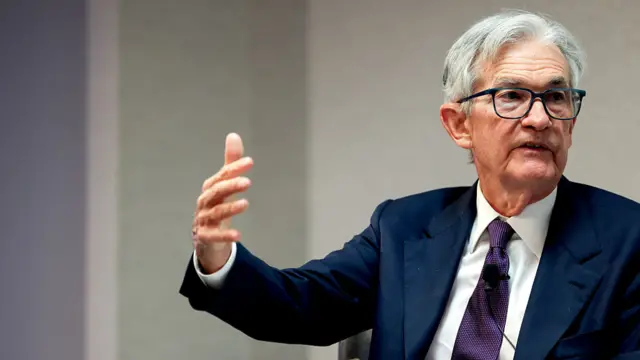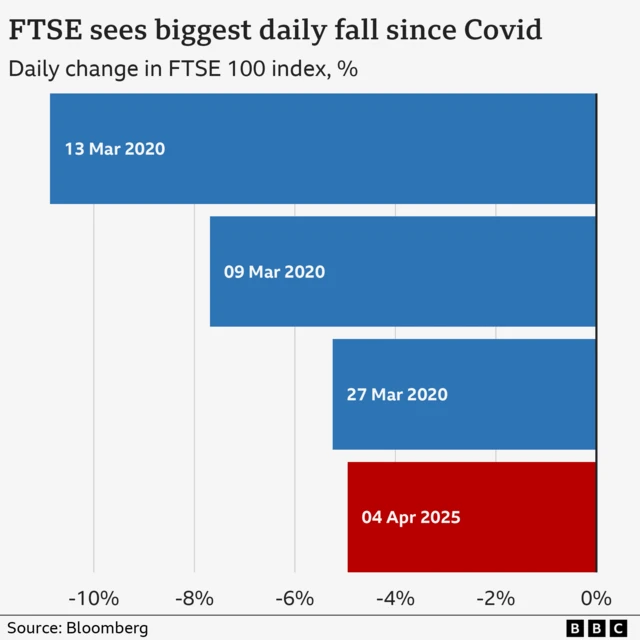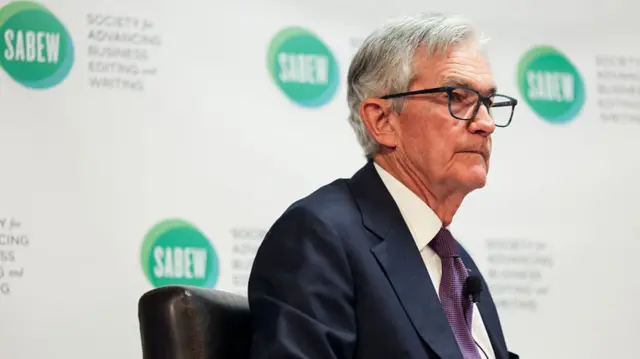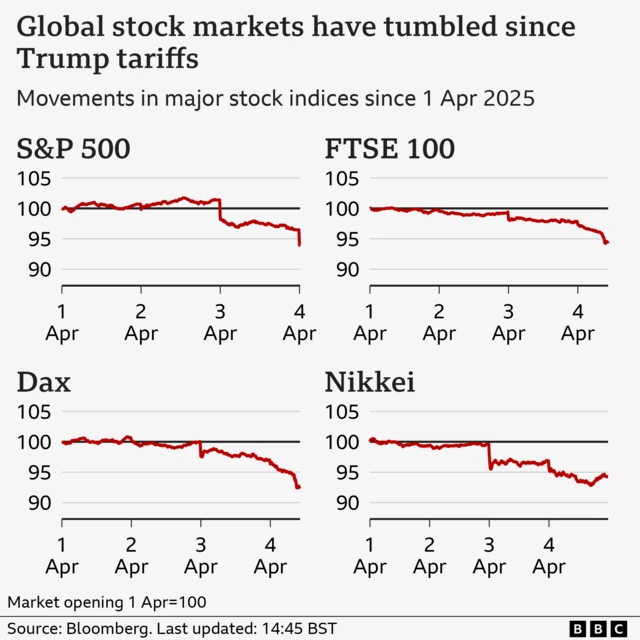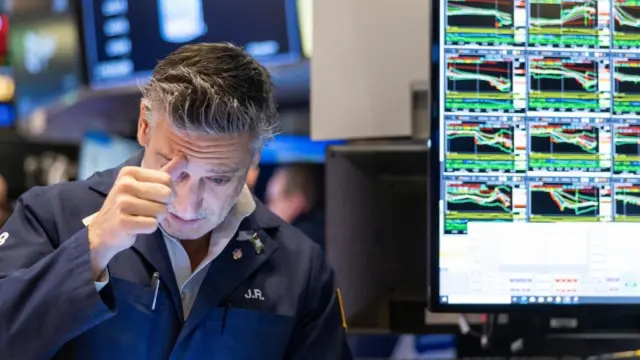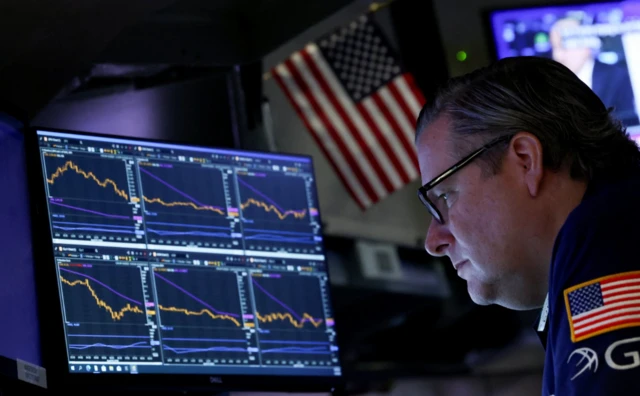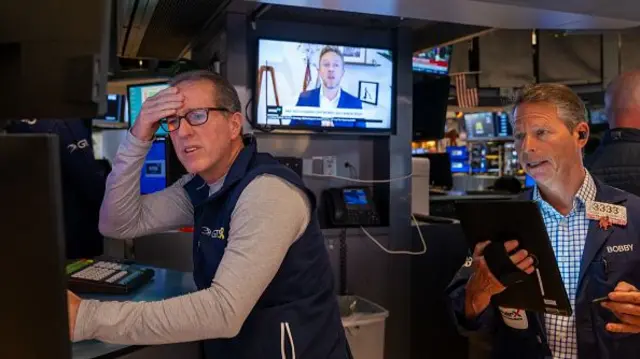Global stock market value sheds $4.9 trillion, investment analyst sayspublished at 17:50 BST 4 April
China's announcement of a retaliatory tariff on the US has capped off a "horrible week" for financial markets, according to one investment analyst who fears share prices could be dragged even lower.
“We’ve now seen $4.9 trillion wiped off the value of the global stock market since the Liberation Day speech, at the time of writing,” AJ Bell's Dan Coatsworth says.
“The rapid pullback in stocks and shares over the past few days has put a dent in people’s investments, including those in the US who were meant to have benefited from Trump’s actions," Coatsworth adds.
"Instead, his tactics have caused shockwaves in every corner of the world."
- Read more: How does it affect me if share prices fall?



